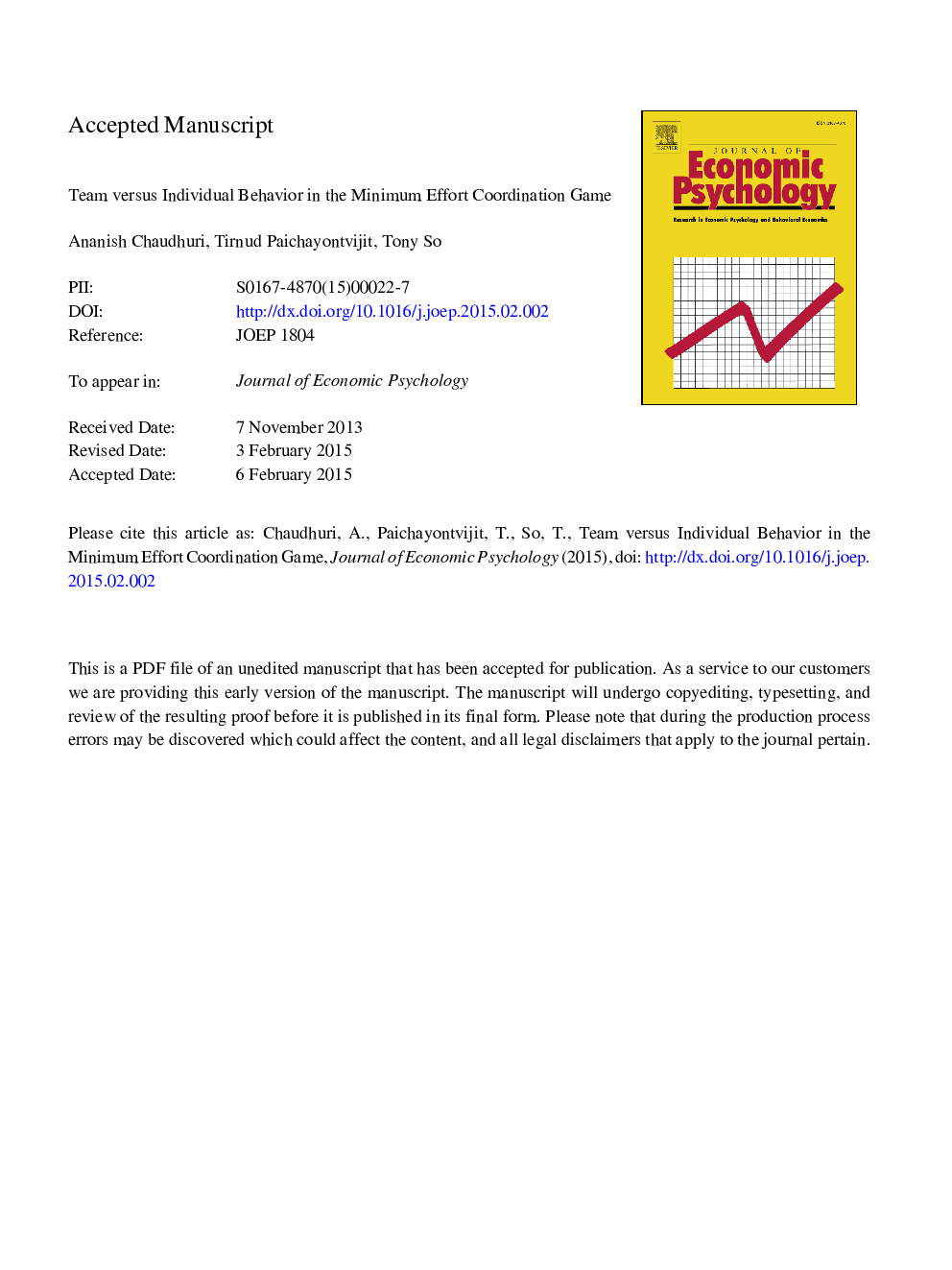| Article ID | Journal | Published Year | Pages | File Type |
|---|---|---|---|---|
| 7244816 | Journal of Economic Psychology | 2015 | 48 Pages |
Abstract
We compare coordination success of individuals and teams in the minimum effort coordination game. The game is played by groups of either five individuals or five two-person teams with either fixed or random re-matching protocols. When groups are fixed, teams perform at least as well as individuals, if not better, in terms of coordinating to the payoff dominant outcome. But with random re-matching, teams experience pervasive coordination failures. A public recommendation to a strategy or a performance bonus exhorting players to coordinate to the payoff-dominant equilibrium has similar impact on coordination for both individuals and teams playing with fixed matching. However, coordination is far more difficult to achieve with teams playing under random re-matching. Our results have implications for the design of work-groups in organizations.
Related Topics
Social Sciences and Humanities
Business, Management and Accounting
Marketing
Authors
Ananish Chaudhuri, Tirnud Paichayontvijit, Tony So,
